Welcome back to A Clan A Day Podcast, brought to you by bagtownclans.com. I'm your host, Colin MacDonald, and today, we’re taking a journey to the rugged landscapes of the Scottish Inner Hebrides to explore the storied history of Clan MacQuarrie. This ancient Highland clan, known for its loyalty, fierce independence, and courage, ruled over the islands of Ulva, Gometra, and Staffa, as well as parts of Mull. Despite being a smaller clan, the MacQuarries hold a proud place in Scotland’s past.
Clan MacQuarrie, or MacGuaire, translates from Scottish Gaelic as “Son of Guaire” or “Son of the Noble.” The clan is one of the seven clans of Siol Alpin, believed to be descended from King Kenneth MacAlpin, the first king to unite the Scots and the Picts in the 9th century. Alongside clans like the MacGregors and MacKinnons, the MacQuarries boast a royal lineage, tracing their ancestry to Guaire, who was said to be a brother of Fingon, progenitor of Clan MacKinnon, and Anrias, from whom Clan Gregor descends. With such ties to early Scottish kingship, the MacQuarries claim a noble heritage that they would fiercely defend for centuries.
The first MacQuarrie chief we find on record is John MacQuarrie of Ulva, who died in 1473. The MacQuarries were initially part of the Lordship of the Isles, the powerful domain ruled by the MacDonalds. But when the Lords of the Isles lost their titles in 1493, the MacQuarries declared their independence as a small but respected clan allied with their neighbors, the MacLeans of Duart. The alliance would prove both a benefit and a challenge, as the MacQuarries fought alongside the MacLeans in the 16th-century rebellions of Domhnall Dubh, a descendant of the Lords of the Isles who sought to restore his family’s rule.
Clan MacQuarrie’s loyalty was particularly notable during Scotland’s conflicts for independence. In 1314, Clan MacQuarrie fought alongside Robert the Bruce at the Battle of Bannockburn, helping secure Scotland’s independence from England. A century later, in 1517, the clan’s resistance spirit showed once more when Chief Dunslaff MacQuarrie was summoned to account for his role in a rebellion against the Crown—a summons that was largely ignored, showing the clan’s pride and defiance even in the face of royal authority.
One of the darkest days in MacQuarrie history came in 1651 at the Battle of Inverkeithing, where Clan MacQuarrie joined forces with Charles II against the English Parliamentarian army. Alongside the MacLeans, the MacQuarries suffered devastating losses, with their chief, Allan MacQuarrie of Ulva, and many of his clansmen falling in battle. This tragic loss marked a turning point for the clan, from which they would never fully recover.
The MacQuarries also featured in some legendary Highland tales. One well-known story involves Allan-a-Sop, a pirate with family ties to the clan. The tale goes that Allan, driven by a feud with his stepfather, sought to conquer Ulva. The chief of Ulva welcomed him with a great feast, extending Highland hospitality, and convinced Allan to turn his ire against his own unkind stepfather. In true Highland fashion, the story ended with Allan avenging his scorched hands by claiming his stepfather’s lands instead, a classic tale of cunning and Highland justice.
In the 18th century, however, Clan MacQuarrie faced significant hardship. Lachlan MacQuarrie, the 16th and last recorded chief, entertained famous visitors Dr. Samuel Johnson and James Boswell on the Isle of Ulva in 1773. Yet, only a few years later, Lachlan was forced to sell his lands due to mounting debts, effectively ending the clan’s chiefship. Despite being in his sixties, Lachlan joined the British Army and served in the American Revolutionary War, where he fought valiantly before returning to Scotland. He passed away at 103, the last in his line to hold the title of chief.
The clan’s legacy didn’t end with Lachlan, however, as his cousin, Major-General Lachlan Macquarie, rose to prominence as Governor of New South Wales, Australia. Known as the “Father of Australia,” Governor Macquarie implemented reforms that greatly advanced the young colony, including expanding infrastructure, establishing Sydney as a city, and supporting explorations that opened the Australian interior. His efforts to integrate convicts back into society earned him both praise and criticism, but his legacy is undeniable. Port Macquarie, Macquarie Island, and the Lachlan River all bear his name, honoring his contributions to Australia.
Even without an official chief today, Clan MacQuarrie continues to thrive through the Clan MacQuarrie Society. Members of the society, including descendants of the original MacQuarries, work to preserve and celebrate the clan’s history, customs, and connections. This global network of MacQuarries keeps the clan’s traditions alive, honoring the clan motto, “Turris fortis mihi Deus”—"God is to me a tower of strength.”
Thank you for joining us on today’s journey through the story of Clan MacQuarrie. From ancient battles and daring tales to their influence in Australia, the MacQuarries’ legacy remains woven into Scotland’s past and present. Be sure to tune in tomorrow for another episode of A Clan A Day Podcast. I'm Colin MacDonald, and as always, go n-éirí an bóthar leat!

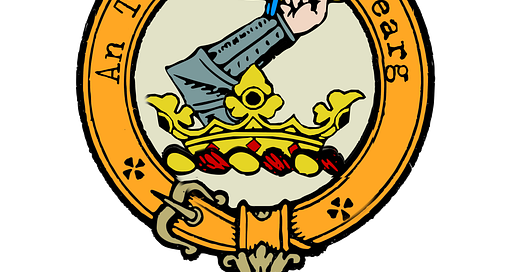
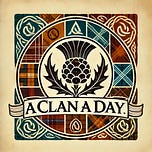


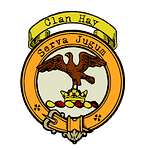
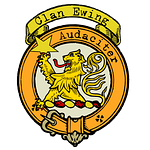
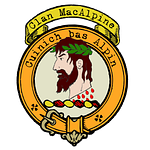
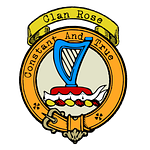
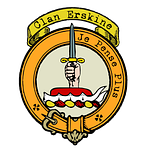


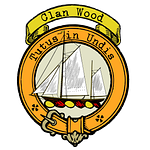
Share this post